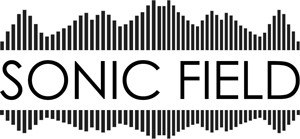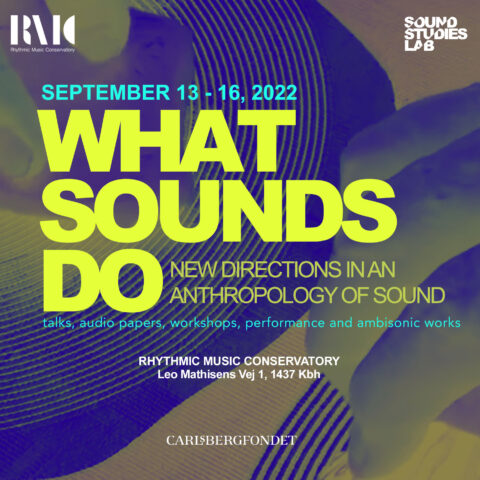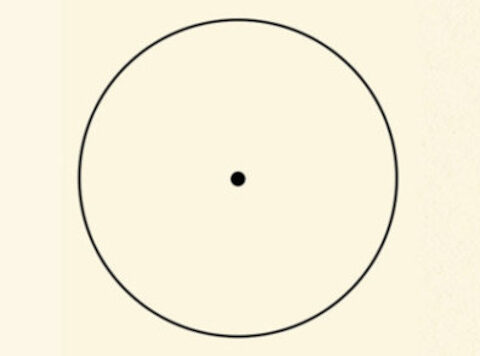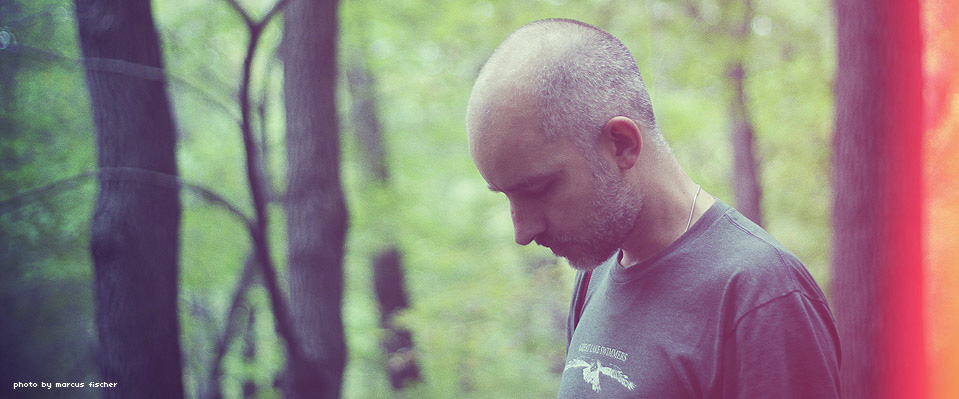
[infinite grain is a series of interviews inspired on microsound procedures, exploring a wide variety of topics in dialogue with artists who work with sound on installation, composition and improvisation]
It would be hard to draw a strong frontier between life and sound, so when it comes to composition, creativity doesn’t appear to be about incubating pretension or rigid ways of controlling sound materials but a process of fulfillment, an opening to the currents of innocence, which, in the same way as sound, flow naturally, not imposed but integrated, open to the subtlety of the present moment.
Songs, dreams and feelings are here combined as spaces in which an intimate meeting takes place, one that is not intended to represent the natural but to connect to it. More than representing, the art and craft of sound grows as an expression and recognition of one’s true nature, hence sounds arise as an honest inner dialogue from which multicolored forms of time result, blending ephemeral grains into textures, rhythms and melodies which together flourish unnamed states of consciousness, points of being, silent routes that eclipse any dichotomy, releasing a special place for contemplation.
It may be a very poor introduction to a sonic mind as prolific as Taylor Deupree, but any word could fail in the process. This artist, boss of the well-known 12k label, is a perfect example of the deepness and detail possible to be achieved in electronic music. His work is, as a whole, an archetype of a composition process in which an undoubtedly natural link between feeling and technology is present as an innate, organic and beautifully fragile pattern.
Deupree’s work belongs to a mellow take on recording, mixing and mastering, delicately weaving sounds in a rare but graceful way, creating invisible landscapes in which both familiar and unknown sentiments emanate, as a path that embraces the nature of stillness and the stillness of nature, organizing sounds in a way that highlights the detail of the ephemeral and opens the listener not just to the transition of sound but the one of life as such, detached, quiet and silent, calling for awareness; greatly inspired and deeply touched by the spirit of listening, spirit of life, here present in an audible microcosm that contains, in lowercase and stripped silhouettes, music.
Hi Taylor, what are you listening at this moment?
exactly at this moment, it’s 8:57am and i’m listening to the cicadas in the trees surrounding my studio. it’s one of my favorite sonic times of the year here. Late July/early August when the cicadas come out. The sound of them some people really dislike, for me it is so calming. One of the most loved sounds to me.
soon I will start reviewing new mastering jobs for the week, so I’ll be listening to music clients have submitted.
coffee first.
Why do would you think is the reason you connect through listening and sound? Why do you create music?
i’m not sure I can answer that very precisely. There is a lot of music in my family for many generations and since I was about 14 years old I knew I wanted to be a musician. I think it’s just what I do… perhaps the way I found best to express myself. I’ve always been drawn to art, but I”m a terrible painter or illustrator. I seem to do better with technology based art, like photography and music. maybe the tools are a crutch, but it’s always been how I work and what I’ve been drawn to.
In which ways do you think your conception and exploration of sound have changed compared to the way you used to have when beginning? Also, is that beginner mind present nowadays? How do you preserve the innocence toward your art?
i think music, and art in general, is all about an exploration of your inner self. my music has mirrored my life and interests over the last thirty years. as we grow as a person our music also grows. different aspect of life that become more, or less, important get reflected in the sounds. 20 years ago i would have never thought i’d ever use an acoustic instrument in my music. i loathed anything but synthesizers. now i’m creating albums that have no synthesizers in them. i’ve learned to accept the now and to never say “never” because one can’t predict the future. i enjoy the exploration most of all.
how do I preserve the innocence in my art? this is a very interesting question because i feel so much of the best music is created with naivete. the more you know the more you get stuck in habits and the harder it is to do new things. when you know less, everything is new. i try to keep the innocence alive, to keep challenging myself by setting rules when i write music. limiting myself to certain tools or processes, despite having access to a lot of gear in my studio. but on the other hand i also really enjoy getting new instruments and studio gear, this keeps the learning constant and the combinations endless, as long as i can keep the focus and limitations when i work.
How would you value sound? As a vehicle? As a substance? As a medium? All or none of those? Why?
I think all of those. It’s a vehicle for my expression, it’s a medium in which I can express myself and it’s a physical, scientific phenomena. Sound is beautiful and complex and likely our most under-appreciated and under-utilized sense.
I wonder how do you get introduced to microsound and to paying attention to small sounds that are widely present in your work; even conceptually implicit. In that particular aspect I strongly remember .N, in which you create this cellular/molecular structures. What do you find interesting on working on that micro scale?
i think that came about for a lot of artists in the mid/late 1990s because computer technology reached the point where really complex processing of real-time audio became possible. it gave us the capability of chopping sounds into really tiny pieces and exploring very small sounds. the commercial availability of real-time granular synthesis opened up a whole new world of sounds. it was new and exciting, really unexplored i think. music that required technology to exist, technology that simply wasn’t available before then.
Normally microsound when related to technological process is commonly linked with granular processes, synthesis, mixing, editing, etc; but when it comes to mastering, how important is microsound for you? For example, in terms of listening and finding micro details and subtle sounds…
i wouldn’t equate the two at all i don’t think. as you said, granular synthesis and micro sounds go hand in hand. mastering is really about listening to a song and determining what it needs to sound its best. both practices do involve careful listening, but that’s more gained from a love of listening to music and a knowledge of mixing practices.
mastering is a lot about broad strokes, sort of the opposite of the micro. it’s often more up to the mixing process to fix the tiny details because there’s only so much mastering can do in a stereo mix to try to fix a specific sound without affecting other sounds in the same frequency range.
In an interview for Bleep, you talk about preferring a vertical way of working with sound rather than a horizontal one. Could you expand that idea? Also, how does it relates with your way of valuing time which in a way is present in the structures you create, but also absent in the actual listening experience, in which your pieces often dissolves my common notion of time, leading the listener to something like other temporality…
well, traditionally recorded music has always been hampered by time restrictions. the length of a record side, the length of a cd.. even the finite length of a really long download file. there have always been start points and end points. my music, as you’ve touched upon, has often been about trying to abandon the sense of time, of a start and a finish. my music often starts by placing the listener down in one spot then wandering around in quite a nonlinear way. but, inevitably, i’m stuck with creating a “start” and “end” because that’s what the playback technology forces. however, because i’m trying to get away from this linear notion of music i think of it in a vertical way, as a layer of sounds going up and down that can be accessed at any point along the timeline where certain layers may or may not be active yet it all relates as a single whole with fragments occurring and recurring.
my friend, and fellow 12k artist, kenneth kirschner has been doing a lot of work lately on indeterminate music. recorded music, thanks to new technologies, that allows constantly evolving and endless playback of a piece of music. a song that is different every time you hear it, and the ability to change it in random ways to create a recording that can go on, in new ways, until you stop it.
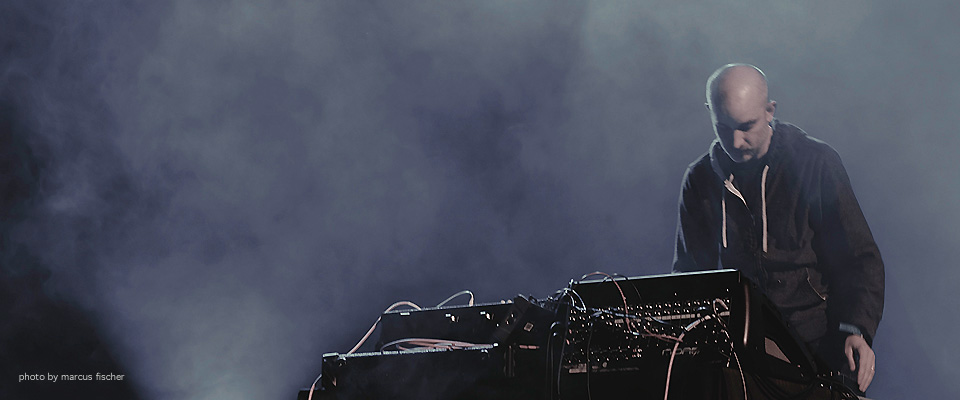
Your music often calls for adopting a contemplative position in which listening is linked to a space of stillness and delicacy. I wonder how much of that is intentional and if it’s somehow related to your way of living.
oh, it’s completely intentional. it’s what i feel the aim of my music is. it takes brian eno’s idea of ambient music as being wallpaper, or, as he puts it, music that can be as easily ignored as it can be engaging, and puts a little more pressure on the listener to really sit and concentrate on it, and thus begin to get lost in its world.
i often make my music balance on the edge of fragility, which comes from a specific design of the sounds and the composition. when it’s successful you have this very gentle, hushed music that has a lot of tension in it. it’s a very strange, but effective contrast. the tension keeps you engaged, in a way fearful that at any minute it’s going to fall apart, while the gentle qualities can relax you and ease that tension. it’s playing with this dichotomy that i find the most interesting music can live.
In that way, I also wonder if there’s some kind of spiritual motivation towards your work. I feel that not only in your composition, but also in the performance as well, in the sacrality implicit in some pieces such as ‘Between’ or the ‘Kaulauk‘ releases. I wonder what do you think about that sense of nature and the disposition of the whole set. Would you think there’s some ritualistic towards that?
i don’t think about that too much. i suppose on some level i have a spiritual side, but it’s not implicitly thought about or intentionally brought up in my art. i do, though, have a deep appreciation of the natural world and my music is very much inspired by nature, specifically the weather and seasons. i think this comes across quite openly in my music and can easily be associated with some form of sense of spirituality.
when i perform live at very spiritual places, such temples in japan, it’s hard to not be influenced by the history and serenity of them and that really blends with the music well.
Following that, would you think there is something you look for in a listener… Detention? Awareness? Transformation? Silence? I guess it’s different for each person, but are there any specific intentions behind the way you propose your work?
well, as recording artists we really don’t have very much control of who listens to our music or how it gets listened to, though i think there’s probably a similar mindset among listeners of my music or any specific genres. i just create my music how it comes naturally to me and leave it to each individual listener to enjoy it or interpret it in any way they wish. i don’t think anyone is dancing wildly to my music or playing it at massive parties, but if that’s what they want to it, it’s fine by me. once i let it out in the world i have to accept its release and its life outside of my studio walls.
I wonder how important is silence for you, both in terms of composing as in terms of listening. I feel your music requires, invites and calls for silence. How would you define it and how is it present in your life/work?
silence is important for me when i’m writing and recording and of course when i’m trying to listen to similar kinds of music. as a lover of sound i really want to hear the details and quality of the recordings. however, given the right kind of surrounding noise it can be quite acceptable to hear outside sounds. there are a lot of times i’m recording something in the studio and intentionally leaving the doors open so the sounds in the forest next to me come in. i’ve also played plenty of concerts in outdoor or near-outdoor settings in a rainstorm, or with gentle evening sounds going on. these are quite nice additions to my music i think. if mother nature wants to join in, i rarely refuse.
How do you approach that palette of timbre and the possibilities towards it… In fact, in an interview at Tonschrift some years ago you say that “acoustic” implies a sound source, while “organic” refers to a compositional technique for you. Could you expand more about that notion of organic that is so widely present in your work?
yes, these two terms, “acoustic” and “organic” to me are quite different. “acoustic” i feel is pretty obvious, it’s an acoustic instrument. no electricity. i use quite a lot of those, from bells and strings, guitars, found objects and things like that. “organic” i think can be applied to both acoustic or electric and synthesized sounds. to me it’s when a sound is recorded or processed or played to sound more rough around the edges, to sound like a worn, more human, version of itself. i like this aspect very much about sounds. many years ago i was most interested in highly synthetic sounds. extremely clean, precise. since moving 10 years ago into an area surrounded by nature i have become more in tune with the beauty of natural decay and nature’s imperfection. this, to me, is the “organic,” and i’m often changing my instrument sounds in such a way to achieve this, whether it’s with the use of analog tape, certain kinds of distortion, vacuum tubes or things like that.
In an interview at Headphone Commute you talk about you being too critical when listening to the albums you compose and finding mistakes or things you wish to do different. I wonder how do you manage this judgment thing during the whole process of creation? And what kind of things you analyse the most?
i very much enjoy creating my music but i really can’t listen to it, which is sad in so many ways! but the part i am most critical about, with my own music, tends to be the mixing and recording sonics. I am always second-guessing the mix or finding ways in which it could have been improved. I think this is probably what lead me to an interest in mastering, to help other artists achieve their sonic goals. I’m just extremely critical of my own work. After i release an album i can’t listen to it for about 2 or 3 years. once enough time passes where i’m removed from it and the processes fade away and when I am able to approach it more as an unbiased listener i can listen to it, but not for enjoyment, i am just able to get to the point where i don’t dislike it.
And in that way, when you talk about mistakes, are you talking about technical things or also things you don’t feel good in terms of aesthetics or musical sensibility? What is a mistake for you? I ask it because I remember you talking in an interview about your wabi-sabi influence, so I wonder how is your way of valuing mistakes, accidents and the aesthetic implications of imperfection
yes, technical (mixing) errors as well as things i don’t feel confident about from an aesthetic point of view. but, yes, it’s quite different from the wabi-sabi idea of the beauty of imperfection. if that were the case then i’d think my music was the most beautiful at all! i think a lot of it has to do with just hearing back and wishing that some mixing aspect were different, or that i took the song in a different direction.
however, when i listen to music that i’ve done in a collaboration, i often feel very confident about it. i think this is because it was created with someone else and if it has passed both of our acceptance than it must be OK on some level, whereas if it’s only myself there is much more insecurity at play.
some of my recordings, like “between,” with marcus fischer, simon scott, corey fuller and tomoyoshi date, i think are absolutely beautiful and have no problem listening back to them. again, when working with others and having a shared sense of accomplishment it’s easier to feel confident. also, in particular recordings like “between” are not only about the piece of music, but capturing a very special moment in time and place with a group of friends. this is what the most special music is about.
Do you think about the future of sound and music. What do you see coming? What would you like to see/hear? What kind of challenges do you think we will face or paths we would/should explore?
i don’t think about the future of my art too much. i prefer to concentrate on today, and what i can do today. there’s no doubt that incredible technologies are coming for music production, but i’m less and less interested in high technologies and more interested in the human aspect and creating new and interesting sounds in more natural ways, using natural phenomena to alter my sounds, not technological phenomena.
it’s almost certain that more difficulty is going to come to recording artists to earn money as listeners demand more and more free music. i’m not sure where this will lead but right now we’re at a very dangerous crossroads. i don’t ask people in other fields to do their work for little or no money so i’m not sure why a lot of people ask that of musicians.
Last but not least, could you please recommend us something to listen and/or read that you have been into recently and maybe our readers could enjoy?
i really encourage your readers to seek out the work of a dutch musicians named Wouter Von Veldhoven. here’s someone creating absolutely beautiful electronic music with very physical means and completely embracing technological limitations and errors. search for his music and videos on youtube and you can see how he works. very amazing. i’ll be releasing some of his work on 12k in the near future. Also my dear friend from Argentina, Federico Durand whose music I have always loved and got the pleasure of touring in Japan with. His music is among the most honest I have ever heard. He will be releasing a CD on 12k very soon. Seek out everything he has done.
